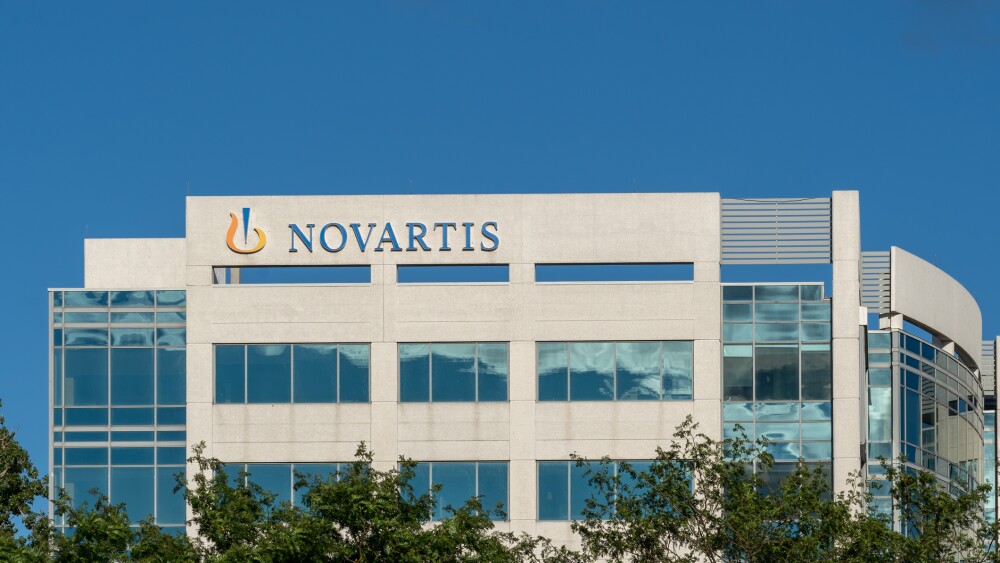Health Canada authorizes Tecentriq SC (atezolizumab, solution for subcutaneous injection), the first cancer immunotherapy subcutaneous injection, for multiple cancer types.
MISSISSAUGA, ON, April 23, 2024 /CNW/ - F. Hoffmann-La Roche Ltd. (Roche Canada) is pleased to announce that on March 13, 2024, Health Canada issued marketing authorization for Tecentriq® SC (atezolizumab, solution for subcutaneous injection), the first cancer immunotherapy for subcutaneous (under the skin injection) administration in Canada, for specific indications in lung cancer, hepatocellular carcinoma (HCC or liver cancer), and breast cancer.1 Until now, Tecentriq has been given directly into patients’ veins by IV infusion, which takes approximately 30-60 minutes.2 The new subcutaneous injection aims to provide an alternative active administration time of approximately seven minutes, with injections taking between three and fourteen minutes.1 In addition to offering an alternative administration time, Tecentriq SC has the potential to be administered outside of the hospital, in a community care setting or at a patient’s home, by a qualified healthcare professional. “While immunotherapy has greatly changed outcomes for many cancer patients, the burden of treatment remains significant. Patients must navigate family, social and financial responsibilities, on top of frequent travel to receive intravenous immune therapy,” says Dr. Sara Moore, Medical Oncologist at The Ottawa Hospital. “This burden can disproportionately affect patients in more rural or remote areas, who can’t easily access infusion centers. The availability of subcutaneous treatment options is a great step towards bringing cancer care closer to home.” By providing this additional option, we aim to demonstrate our commitment to investing in and delivering innovative solutions that bring additional value to patients, and alleviate existing burdens in our constrained healthcare systems. “The adoption of SC immunotherapy in lung cancer provides tangible benefits for patients and health care providers,” says Michelle Forman, RN, CON(c), Oncology Nurse, at Burnaby Hospital Cancer Centre. “For patients, it offers practical benefits like reduced time spent in the clinic, less invasive administration, and greater flexibility with scheduling. It also enables treatment closer to home, reducing travel stress.” Forman adds that, “For healthcare providers, the fixed dosage of SC immunotherapy formulation can help to optimize resource utilization, simplify ordering, and enhance patient safety by reducing the likelihood of dosage calculation errors. Additionally, the time saved administering immunotherapy subcutaneously can improve workflow efficiency.” “The disease burden is high for those living with lung cancer, and treatment innovation is critical to ensuring hope for patients,” said Shem Singh, Executive Director of Lung Cancer Canada. “We welcome the approval of Tecentriq SC as it will allow more Canadians living with lung cancer to have the flexibility of an additional treatment option when it comes to managing their disease and improving quality of life.” Roche Canada now looks forward to working together with the pan-Canadian Pharmaceutical Alliance (pCPA), as well as the provincial and territorial governments, to achieve sustainable, equitable access to Tecentriq SC. We are hopeful that the unique value of Tecentriq SC for patients, healthcare providers and healthcare systems will be recognized and made available to all Canadian patients who need it. The marketing authorization of Tecentriq SC is based on results from the pivotal data from Part 2 of the Phase IB/III IMscin001 study, which showed that treatment with Tecentriq SC produced non-inferior levels of atezolizumab in the blood versus intravenous administration of Tecentriq.1 The marketing authorization applies to all authorized indications of Tecentriq (intravenous formulation), with specific indications in lung cancer, hepatocellular carcinoma (HCC or liver cancer), and breast cancer, providing this additional option to patients in all eight indications, in three cancer areas. About Tecentriq SC (subcutaneous)1 Atezolizumab in Tecentriq SC is the same monoclonal antibody as in Tecentriq (intravenous formulation). It has been designed to bind with a protein called programmed death ligand-1 (PD-L1), which is expressed on tumour cells and tumour-infiltrating immune cells, blocking its interactions with both PD-1 and B7.1 receptors. This protein makes the immune system in your body not work as well. By attaching to the PD-L1 protein, Tecentriq may help the immune system fight the cancer. Tecentriq is a type of cancer immunotherapy treatment. Immunotherapy treatments work by helping to strengthen or restore the immune system’s ability to fight the cancerous cells.3 The marketing authorization applies to all authorized indications of Tecentriq (intravenous formulation), with specific indications in lung cancer, hepatocellular carcinoma (HCC or liver cancer), and breast cancer. About the Health Canada Authorization1 The authorization of Tecentriq SC by Health Canada is based on Part 2 of the IMscin001 study. IMscin001 is a Phase IB/III, global, multicentre, randomized study evaluating the pharmacokinetics, safety and efficacy of atezolizumab subcutaneous compared with atezolizumab intravenous in patients with locally advanced or metastatic non-small cell lung cancer (NSCLC) who have not been exposed to cancer immunotherapy (CIT) and for whom prior platinum-based therapy has failed. The study enrolled 371 patients. The study met its primary endpoints, demonstrating that treatment with Tecentriq SC produced non-inferior levels of atezolizumab in the blood versus intravenous administration of Tecentriq on the basis of established pharmacokinetic measurements; observed serum Ctrough and model-predicted area under the curve. About Roche Canada At Roche Canada, patients and science are at the heart of everything we do. Our passion for science and our commitment to relentlessly pursuing the impossible for patients have made us one of the world’s leading pharmaceutical, in-vitro diagnostics, and diabetes care management companies. With our combined strength in diagnostics and pharmaceuticals, we’re driving personalized healthcare (PHC) forward, while ensuring we deliver meaningful benefits for patients and a sustainable healthcare system. Because we’re committed to making quality healthcare accessible to everyone. And we’re adding our expertise in new areas, such as artificial intelligence, real world data collection and analysis and collaborating with many different sectors and industries. Having the courage to reinvent ourselves and question the status quo is what patients and the healthcare system expect from Roche - and our commitment is as strong today as it was on the first day of our Canadian journey in 1931. Today, Roche Canada employs more than 1,800 people across the country through its Pharmaceuticals division in Mississauga, Ontario as well as its Diagnostics and Diabetes Care divisions in Laval, Quebec. For more information, please visit www.RocheCanada.com or follow Roche Canada on LinkedIn, or on X @RocheCanada. References SOURCE Roche Canada |


